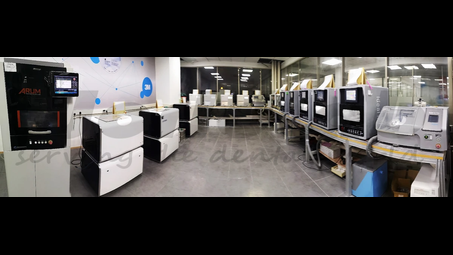Dental Laboratory outsourcing is when you hire a dental lab outside the company to process your dental products. Outsourcing can be in the country or abroad, depending on your decision. Products produce by outsourcing dental laboratory are available at very reasonable price and have very good finishing and long durable. Dental laboratory outsourcing abroad allows you to understand more about the dental world, culture, and working styles of other countries, creating a premise if you want to expand your business beyond the country.

What else can I help you with?
What are the benefits of dental laboratory outsourcing?
Dental Laboratory Outsourcing is when you hire a dental lab outside the company to process your dental products. Outsourcing can be in the country or abroad, depending on your decision. Dental Laboratory offers many profits if you properly exploit the potential of outsourcing. Some of benefits of dental laboratory outsourcing are as follows : The source of goods from outsourcing is always diverse, competitive, and quality. Save production operating costs, technician costs, investment costs, and depreciation of production equipment Less material costs on products remarks Can focus on customer service, marketing, market expansion Changing partners when not satisfied with quality is always easier than changing and recruiting new employees to work directly at the company. Dental laboratory outsourcing abroad allows you to understand more about the dental world, culture, and working styles of other countries, creating a premise if you want to expand your business beyond the country.
Where would you commonly find the dental laboratory in a dental office?
The dental laboratory is located in a separate area of the dental office(away from the patient treatment area).
What Education do dental laboratory technician have?
dental technicians have the knowledge on how to restore dentures,dental materials and prosthetics.
Where are auxilary dental procedures such as the formation of dentures preformed in the dental office?
Answer is B. In the laboratory
Does dental laboratory tech required to have license in NY state?
no
Where in Dallas, Tx are some dental laboratories?
There are several dental laboratories in Dallas. A search on super pages (http://www.superpages.com/yellowpages/C-Dental+Laboratories/S-TX/T-Dallas/) will list them all. Here are some of them: G & G Dental Laboratory, 732 W Davis S,Dallas, TX 75208 |Bautista Dental Laboratory, 2602 Manor Way, Dallas, TX 75235 | Reliable Dental Laboratory, 10155 Plano Rd, Dallas, TX 75238
How much does a dental laboratory technican earn?
between $22,900-35,400
A list of doctors in Ottawa that does dental implants.?
The Ottawa Dental Laboratory offers implant services. Their number is 800-851-8239.
What has the author A J Griffin written?
A. J. Griffin has written: 'Dental Laboratory Management'
What is a Dental lab Technicians salary?
Median hourly earnings of dental laboratory technicians were $14.93 in May 2004. The middle 50 percent earned between $11.18 and $19.71 an hour. The lowest 10 percent earned less than $8.86, and the highest 10 percent earned more than $25.48 an hour. Median hourly earnings of dental laboratory technicians in May 2004 were $15.95 in offices of dentists and $14.40 in medical equipment and supplies manufacturing.
What is better bds or bs in dental technology?
The choice between a BDS (Bachelor of Dental Surgery) and a BS in Dental Technology depends on your career goals. A BDS is a professional degree that prepares you to become a licensed dentist, focusing on clinical practice and patient care. In contrast, a BS in Dental Technology emphasizes the technical and laboratory aspects of dentistry, training you to create dental prosthetics and appliances. Ultimately, your decision should align with whether you want to practice as a dentist or work in dental technology and laboratory settings.
What is the most commonly used bur in the dental laboratory?
The most commonly used bur in the dental laboratory is the carbide bur, specifically the round bur. It is favored for its versatility and efficiency in cutting, shaping, and finishing various dental materials. Round burs are particularly useful for preparing cavities, reducing tooth structure, and refining surfaces. They come in various sizes and shapes to accommodate different dental procedures and materials.
